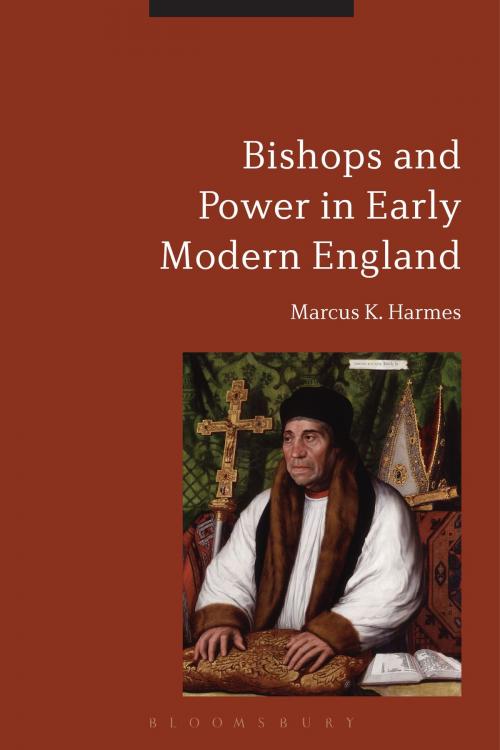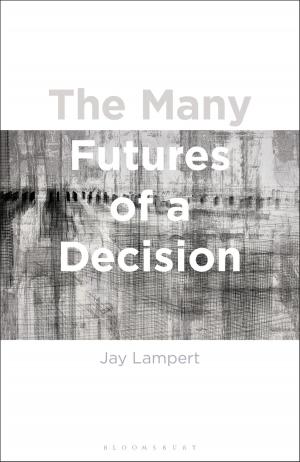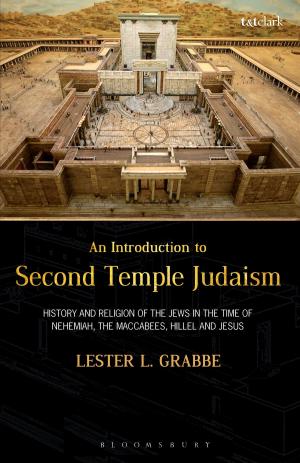Bishops and Power in Early Modern England
Nonfiction, History, Modern, 17th Century, Religion & Spirituality, Reference, British| Author: | Dr Marcus K. Harmes | ISBN: | 9781472509185 |
| Publisher: | Bloomsbury Publishing | Publication: | October 24, 2013 |
| Imprint: | Bloomsbury Academic | Language: | English |
| Author: | Dr Marcus K. Harmes |
| ISBN: | 9781472509185 |
| Publisher: | Bloomsbury Publishing |
| Publication: | October 24, 2013 |
| Imprint: | Bloomsbury Academic |
| Language: | English |
Armed with pistols and wearing jackboots, Bishop Henry Compton rode out in 1688 against his King but in defence of the Church of England and its bishops. His actions are a dramatic but telling indication of what was at stake for bishops in early modern England and Compton's action at the height of the Restoration was the culmination of more than a century and a half of religious controversy that engulfed bishops. Bishops were among the most important instruments of royal, religious, national and local authority in seventeenth-century England. While their actions and ideas trickled down to the lower strata of the population, poor opinions of bishops filtered back up, finding expression in public forums, printed pamphlets and more subversive forms including scurrilous verse and mocking illustrations. Bishops and Power in Early Modern England explores the role and involvement of bishops at the centre of both government and belief in early modern England. It probes the controversial actions and ideas which sparked parliamentary agitation against them, demands for religious reform, and even war.
Bishops and Power in Early Modern England examines arguments challenging episcopal authority and the counter-arguments which stressed the necessity of bishops in England and their status as useful and godly ministers. The book argues that episcopal writers constructed an identity as reformed agents of church authority. Charting the development of this identity over a hundred and fifty years, from the Reformation to the Restoration, this book traces the history of early modern England from an original and highly significant perspective. This book engages with many aspects of the social, political and religious history of early modern England and will therefore be key reading for undergraduates and postgraduates, and researchers working in the early modern field, and anyone who has an interest in this period of history.
Armed with pistols and wearing jackboots, Bishop Henry Compton rode out in 1688 against his King but in defence of the Church of England and its bishops. His actions are a dramatic but telling indication of what was at stake for bishops in early modern England and Compton's action at the height of the Restoration was the culmination of more than a century and a half of religious controversy that engulfed bishops. Bishops were among the most important instruments of royal, religious, national and local authority in seventeenth-century England. While their actions and ideas trickled down to the lower strata of the population, poor opinions of bishops filtered back up, finding expression in public forums, printed pamphlets and more subversive forms including scurrilous verse and mocking illustrations. Bishops and Power in Early Modern England explores the role and involvement of bishops at the centre of both government and belief in early modern England. It probes the controversial actions and ideas which sparked parliamentary agitation against them, demands for religious reform, and even war.
Bishops and Power in Early Modern England examines arguments challenging episcopal authority and the counter-arguments which stressed the necessity of bishops in England and their status as useful and godly ministers. The book argues that episcopal writers constructed an identity as reformed agents of church authority. Charting the development of this identity over a hundred and fifty years, from the Reformation to the Restoration, this book traces the history of early modern England from an original and highly significant perspective. This book engages with many aspects of the social, political and religious history of early modern England and will therefore be key reading for undergraduates and postgraduates, and researchers working in the early modern field, and anyone who has an interest in this period of history.















